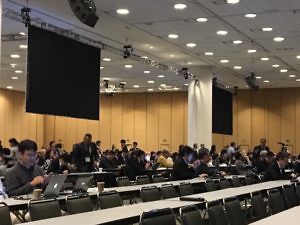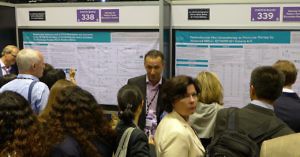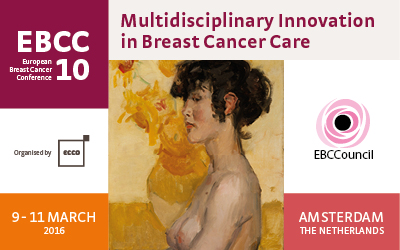After an entertaining morning yesterday – two interviews completed and wrong conference centre visited (yes really, there’s always a first for everything!) by lunchtime, things thankfully settled down.
Friday, for the uninitiated, is company symposia day – the equivalent of ASCO’s Super Friday. I rarely attend these in Europe, as they are more about corporate messages than what I call “proper CME”, meaning scientific or clinical fair balance and independence. This is one area where Europe still has a-ways to catch up the US on.
Before anyone gives me a hard time on this, I’ll never forget a vendor telling me a couple of years ago that I would love a particular symposia as he had personally ‘supervised and written’ the slides for the event, thus ‘ensuring’ it would be excellent while persuading me to attend against my better judgment. Naturally, I hated it – too many company messages or perspectives, and not ones I agreed with either – and left early, sadly disappointed.
We did attend the first ECC Press Briefing Friday afternoon with Drs Sant, Chouieri and Sharma. The last two authors presented on the metastatic renal cell carcinoma (mRCC) data after initial therapy, which is being presented in the Presidential Symposium on Saturday morning. It was quite an eye opener in many ways, with some subtleties well worth exploring in additional analysis and discussion.
Beyond the obvious highlights of the day for Saturday (nivolumab and cabozantinib data in mRCC), the first official day here is pretty jam packed with lots of other data to ruminate over. Throughout the day, we’ll be adding additional notes, commentary and insights as the data emerges – and wifi permits.
To learn more insights on this intriguing topic, subscribers can log-in or you can purchase access to BSB Premium Content.
This content is restricted to subscribers
 Orlando – AACR23 is in full swing and one of the areas gaining a lot of attention at the meeting is a surfeit of new data on targeting KRAS.
Orlando – AACR23 is in full swing and one of the areas gaining a lot of attention at the meeting is a surfeit of new data on targeting KRAS. One of the questions we routinely think about at BSB and ask researchers is what are the mechanisms of resistance underlying the therapy they are evaluating in preclinical or clinical studies?
One of the questions we routinely think about at BSB and ask researchers is what are the mechanisms of resistance underlying the therapy they are evaluating in preclinical or clinical studies? Here, we wanted to explore the evolving universe more broadly and assess criticality as well as applicability – which agents might shine tomorrow if clinical data turn out positive? The simple answer is more than you know.
Here, we wanted to explore the evolving universe more broadly and assess criticality as well as applicability – which agents might shine tomorrow if clinical data turn out positive? The simple answer is more than you know. We’re at the point in time in the cancer conference calendar where we are rolling out AACR analyses and interviews while also highlighting relevant ASCO abstracts to watch out for.
We’re at the point in time in the cancer conference calendar where we are rolling out AACR analyses and interviews while also highlighting relevant ASCO abstracts to watch out for.


